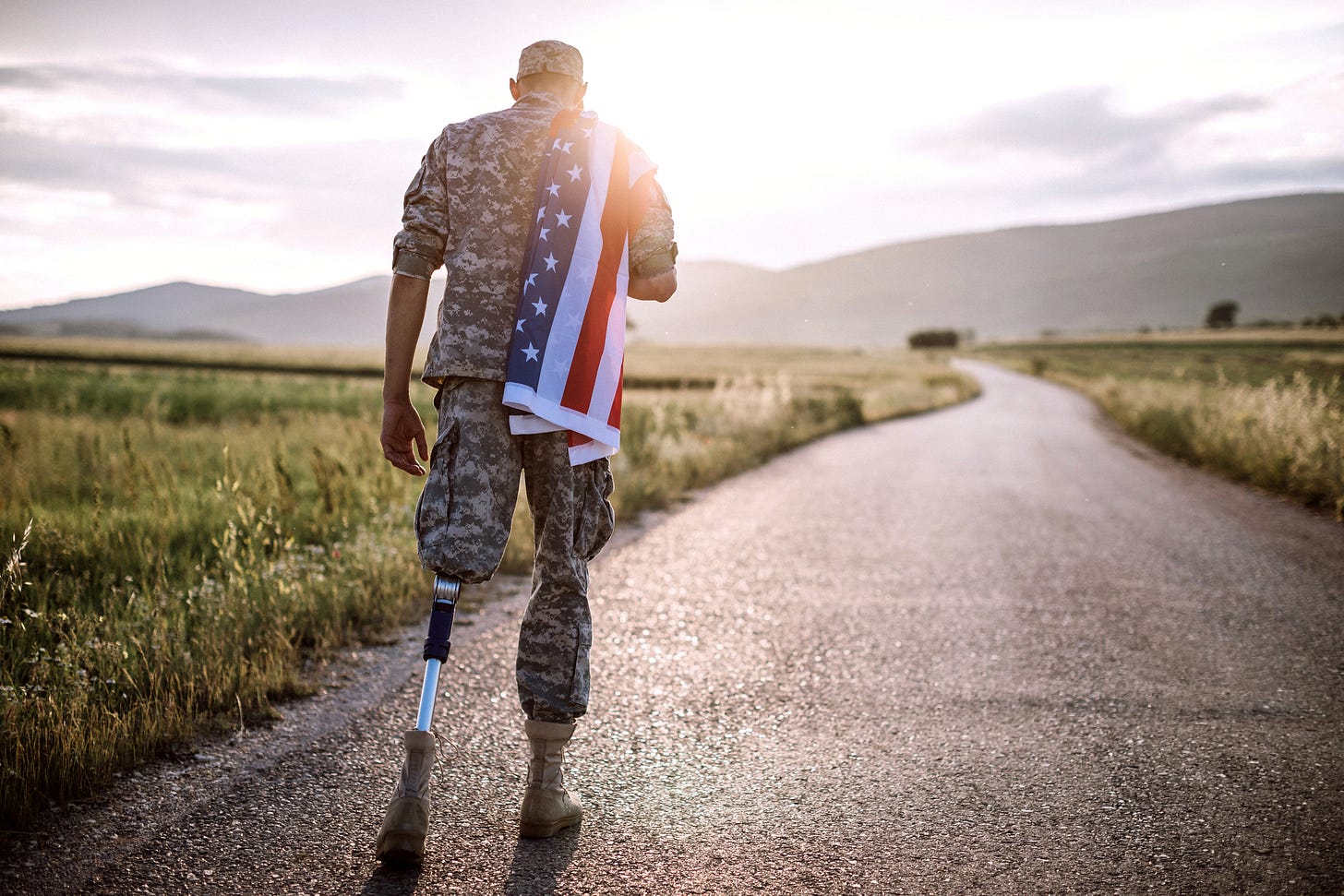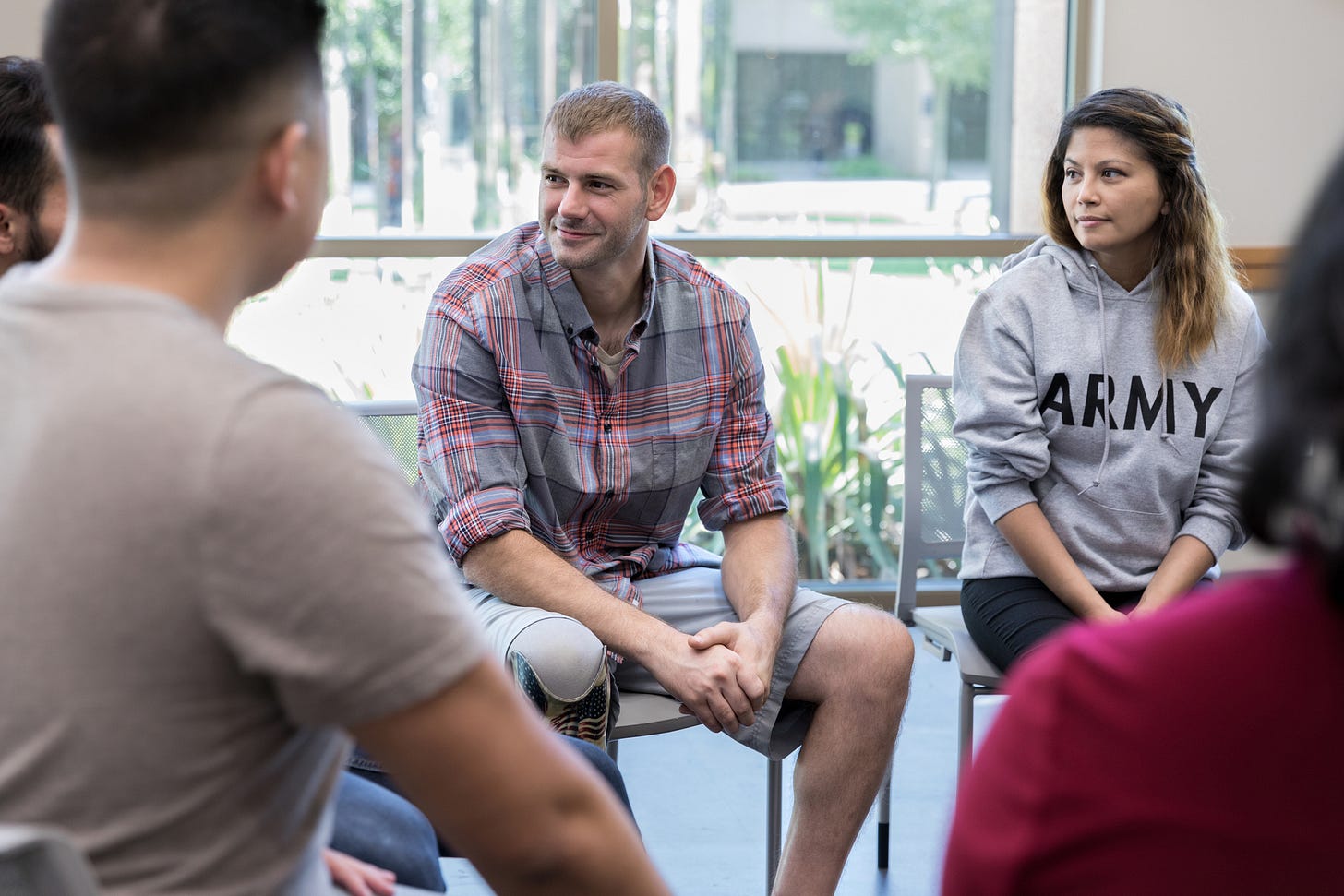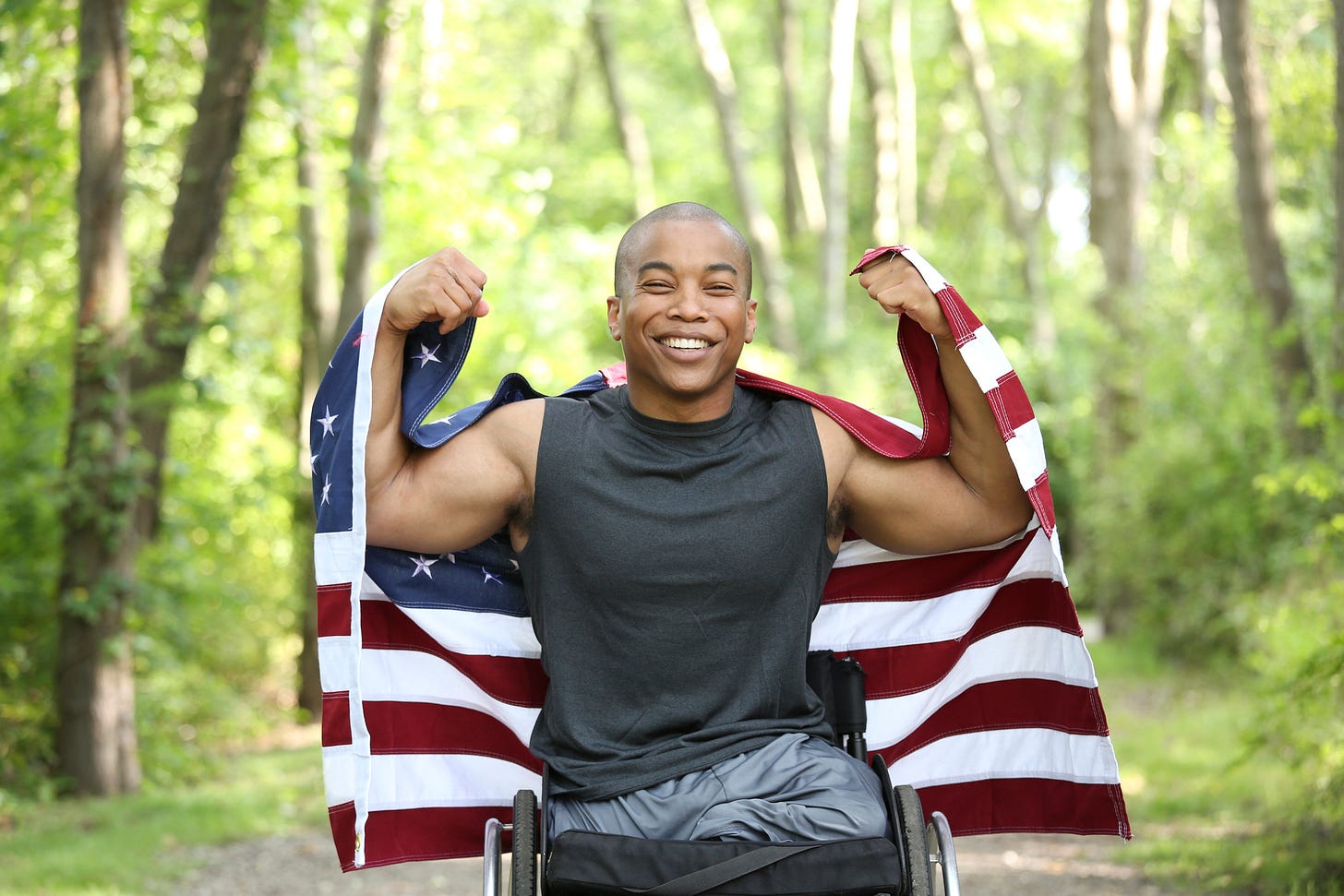Love Notes, Gratitude, and the Spiritual Courage of Combat Veterans
A reflection on the deep catharsis of honesty.
In the early spring of 2014, I flew to Breckenridge, Colorado, to work with a group of injured US war veterans and their families as part of a program called Wounded Heroes Family Adventures. This was an opportunity that I was, and still am, extremely grateful for. There I stood, full of anxious energy, about to speak to what felt like one of the most important audiences in America.
I was in the fluorescent-lit third-floor hallway of a ski lodge, readying to meet twenty-two wounded combat veterans and their families to help, in the words of the program’s leader, “facilitate better conversations.” As you might imagine, the weight of their experiences profoundly affected how they communicated with their family members—and vice versa.
Specifically, my task that day was to get the veterans and their families talking to one another again. That does not come easily when PTSD affects the warriors’ spouses and children as much as it does the soldiers themselves. Most of these military personnel, both men and women, had returned from Baghdad and Afghanistan, still battling the effects of severe brain injuries and physical and emotional trauma.
Prior to the session, I sat down with the two psychologists on staff to discuss my vision for the event and to receive a briefing on the group’s physical and mental challenges. “They’re all highly medicated,” one of the psychologists said. “They’ve been extremely hard to reach over the last couple of days.” Then another psychologist informed—or, rather, warned—me, “Peter, apart from their physical injuries, certain members of this year’s group have some severe anger issues.” I didn’t need any more reinforcement to understand the gravity of the situation.
After being introduced to the families, I talked briefly about myself and how honored I felt to be present with everyone. But less than a minute in, I could already see my advanced preparations for the session barreling toward a snowdrift. So I did what I knew had to be done: I threw out my well-rehearsed script.
I started to improvise some upbeat, playful songs about several of the kids. After they’d jumped around for fifteen minutes or so, everyone started to feel more at ease. And once it was established that I wasn’t there to confront or embarrass anyone, I looked out at the families and said the first thing that came to my mind: “Let’s pretend it’s Christmas morning. We’re going to give each other the most valuable gifts in the world, except none of them will cost a thing.” A couple of the soldiers’ wives glared at me. One teenager stared me down like he wanted me to slink away and die. But I wasn’t unnerved. In fact, I felt a rush of gratitude to simply be there—and gratitude empowers.
I told the soldiers to write what were essentially love notes. “Grab a pencil and a piece of paper,” I said. “And in no more than seven minutes, I want you to write a short note that tells your spouse why you still love them, why they still turn you on, and why you’re still proud of them.” Then I turned and looked at the soldiers with a touch of faux sincerity and said, “Hey, guys, I get it: this might be hard for many of you. So if you don’t feel like participating...shut the F up and do it anyway!” The soldiers smiled and got busy while a small group of volunteers hovered nearby to assist those who couldn’t write because of their injuries.
Many of the soldiers became emotional. Boxes of Kleenex were passed around. After the seven minutes were up, I asked each soldier’s spouse to do the same. “Why do you still love your husband or wife? What makes you proud of them? What makes you want to stay with them after all you’ve been through?” And when the spouses finished their notes, I turned to the soldiers and asked them to write similar notes to their children. “Why are you proud of your kids? What do you love about them? What do you look forward to doing with them individually and as a family?”
Finally, I asked the children to write the same kind of letters to their parents. Soon, dozens of love notes blanketed the tables. Then all that was needed were some brave people to read them aloud.
A microphone was passed around. One woman looked at her husband, a warrior missing most of his left arm. In a barely audible voice, she said, “I never feel more secure than when I’m wrapped up in your strong and loving embrace.” Soon a sixteen-year-old boy stood up, and the room fell silent. I remembered reading about him in a brief dossier on each of the families. This was a kid who hadn’t spoken to a soul about his sense of loss since his father, a Marine who’d sustained severe brain injuries in a Baghdad firefight, had returned home eight years previously. “Dad,” he began, struggling through tears, “I just want to tell you how proud I am at how far you’ve come.”
Another soldier, badly wounded after two tours in Iraq and two in Afghanistan, took hold of his sons, ages eighteen and fifteen, and sobbed. “I can’t tell you guys how sorry I am for missing your baseball games, your birthdays, and our Christmases together,” he finally said. “I want to tell you how much I love you and how thankful I am that God chose me as your dad.”
After all the letters were read, a calming silence washed over the room. I reached for my guitar again and went back to improvising a few more upbeat songs for the kids. The family members who could do so rose to their feet and began to dance; others clapped. The room, just a short while earlier a place of fear and tentativeness, resounded with vibrant laughter. It was incredible to see how quickly people who had braved some of the most difficult physical and emotional challenges imaginable could rebound from fear and doubt to expressions of joy.
That radical shift in mood occurred entirely because of the families’ heartfelt and highly creative expressions of gratitude. At that moment, the soldiers and their families transcended tremendous physical pain and emotional trauma. They emptied themselves of complexity and anguish and filled themselves with a simple appreciation for life itself.
Of course, no one expected that the warriors’ lives would suddenly become easy or that their physical and psychological problems would disappear. In terms of spiritual courage, though, the soldiers were able to transition from their wounded state to a state of thankfulness and communion with their families.
Spiritual Eye Opener (SEO) Gratitude Note to Self
In this SEO, I’m going to ask you to write a short note similar in tone to the ones the soldiers and their families wrote. Except in this case, write the note to yourself. Write about how grateful you are to be you and how proud you feel about your own integrity and accomplishments. This is important because only people who can extend a measure of loving-kindness to themselves are truly equipped to bestow it upon others.
Some people who approach this SEO feel uncomfortable—or, worse, are barely able to muster enough pride to write a paragraph or so of self-appreciation. You may find the idea of saying positive things about yourself challenging or even embarrassing. You’ll also likely come face-to-face with your disappointments and even moments of dishonesty. It’s easy to see why overt self-regard can seem just plain wrong.
On the other hand, I sometimes wonder whether many of us take humility too far, letting it grow into self-hatred or self-denial. I assure you, this SEO won’t turn you into a narcissist: your self-awareness, especially if it feels awkward, is a sure sign it won’t. Actually, it’s through gratitude for our own selves that we learn to feel grateful for the people, phenomena, and experiences in our lives.
As an example of what your SEO could look like, below is part of a letter I wrote to myself on a day when I was feeling anxious and sad. Writing it helped yank me out of the hole I’d been in. (Yes, even people who write essays like this one can experience bouts of depression!)
You try so hard to get people to notice you, to like you, to admire you. I know more than anyone how much being recognized and accepted means to you—of course I do: I am you! But here’s the thing I want you to remember: I know beyond a doubt that you are special. It’s impossible for anyone to see himself as others do. But I believe if I saw you for the first time, I’d immediately be drawn to you. I’d have an affinity for your sardonic sense of humor, for how sensitive you are to the ache of the exile we all seem to be living in, and for how cognizant you remain of both the fragility and sacredness of life.
Here’s one of the best things about you: no matter what’s happening, you get up, and you create something new each day. You make music and art, and most importantly, you work to enable loving connections between people. Despite the many things that haven’t gone according to plan, you always believe that you are worthy of God’s love. And know this, Peter: I love you, too.






